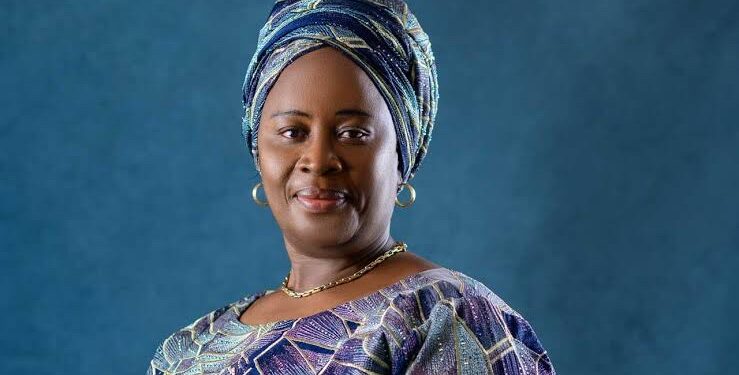Business
FirstBank, UN Women share insights on women‘s empowerment through investments and gender equality initiatives

FirstBank, UN Women share insights on women‘s empowerment through investments and gender equality initiatives
A webinar hosted by FirstBank, titled “Invest in Women, Accelerate Progress,” provided valuable insights into empowering women through investment and advancing gender equality.
The discussion was aligned with the 2024 theme, “Count her in,” advocated by UN Women, which aimed to amplify women’s voices in advancing inclusive and sustainable development, in accordance with Sustainable Development Goals 5 and 8.
The webinar centered on gender lens investment, education for the girl-child and women, sustainability, and urgent action for women’s economic empowerment. Furthermore, it called for the establishment of a care society that amplifies women’s voices.
The key objectives of the webinar included providing context and conceptual clarity on women’s empowerment in Nigeria, exploring the importance of investing in women as a sustainable socio-economic development priority and fundamental human rights issue, as well as innovative gender lens investment strategies.
Mo Abudu, media mogul and CEO of EbonyLife in her keynote address, emphasized the need to focus on tangible results and encouraged setting ambitious goals. Abudu shared personal anecdotes, stressing the importance of perseverance, time management, and self-advocacy in achieving success. She underscored the significance of women’s leadership and urged deliberate efforts to promote women to leadership roles within organizations.
She said;
“It’s the results that count. It’s about what we need to do to achieve the results we want….I keep reinventing and rebranding.”
“Some of the things that worked for me, are the things we already know, but do we practice it?”
“It’s important to make daily actions and things you need to achieve. I see challenges as opportunities because it means there’s a solution”.
Ms. Beatrice Eyong, the lead country representative in Nigeria for UN Women and ECOWAS, shared how the UN invests in women to accelerate progress in women’s economic empowerment.
She stressed the critical need to invest in women and girls, highlighting persistent gender inequalities in areas like the digital space, leadership, decision-making, and unpaid care work, which contributes to the feminization of poverty and hinder development equilibrium.
She stated that there is a significant shortfall in funding for gender equality initiatives, with estimates indicating a substantial financial gap, risking millions of women and girls falling into extreme poverty by 2030 without increased investment.
“UN Women statistics shows that we need $360 billion annually to close the gender gap.
“By 2030 if we don’t increase the investment we will see 340 million women and girls go into extreme poverty.
“We need to fund technologies that will reduce the time women spend on chores. If we could put 4% of our Gross domestic product on childcare services, it could create 9 million jobs in Nigeria”
According to her, it is therefore important to prioritize funding and supporting initiatives that empower women economically, socially, and politically, as a holistic investment approach in women’s advancement is needed.
In stating the approaches to close the gap, she highlighted the importance of time management through coaching, mentoring, and personal development and the need to invest in technology and digital solution equipment to empower women. She also spoke about closing the gender disparities in leadership, decision-making, and unpaid care work, which exacerbates poverty and hinders development.
Based on this, the urgent actions needed are to fund technologies to reduce women’s time spent on household chores, investing in women’s personal development, improved healthcare for women, access to services, promoting fair taxation policies, and supporting women’s productive activities at grassroots levels.
Amina Oyagbola, a lawyer, founder and chairperson of WISCAR (Women in Successful Careers), on the panel stressed the significance of creating an enabling environment for women’s participation, advocating for the passage of gender bills and greater involvement of the private sector in promoting gender equality. She commended FirstBank for its commitment to increasing women’s representation in the workforce and underscored the importance of intentionality in driving progress towards gender equality.
According to her:
“Only 34 companies in Nigeria signed on the WEPS (Women Empowerment Principles); now we have over 200 companies that have signed on.
“Beyond signing on, the question is what actions are being taken to embed the principles, to develop a gender action plan, gender responsive budgeting.
“If we are serious about moving the needle, it starts with intentionality”.
She cited FirstBank as an example of an intentional organization as it set a target of 40% on achieving women’s representation in its workforce, and it has achieved 39% so far. On the leadership level, 30% of women in the bank are represented which shows progress.
Marilyn Obiasa-Osula, a Management Consultant at PwC, emphasized the need for big corporates to ensure gender inclusivity within their supply chains and highlighted the underrepresentation and underpayment of women in various industries.
She underscored the role of women as job creators in the gig, blue, and green economies and emphasized the importance of mentorship, policy formulation, and technology in empowering women entrepreneurs.
Taiwo Ogunleye exemplified how her organization, which is in the automobile industry, collaborated with other stakeholders to train females in mechatronics and technical skills to provide them with employment opportunities. She said:
“At some point, we trained women on Engineering, mechatronics. We collaborated with the first lady mechanic to train women, and we are open to further collaborations and also engage stakeholders in recruiting females.
“We maintain gender-neutrality in my organization”.
Adeyinka Aderonke, a Senior leader at FirstBank finally shared how the bank is supporting women through innovative sustainable financial instruments with the potential to accelerate gender equality. She highlighted FirstBank’s initiatives, such as FirstGem, aimed at supporting women entrepreneurs in various sectors, and how its innovative financial instruments help in supporting women’s economic empowerment while acknowledging that there are challenges associated with their implementation.














